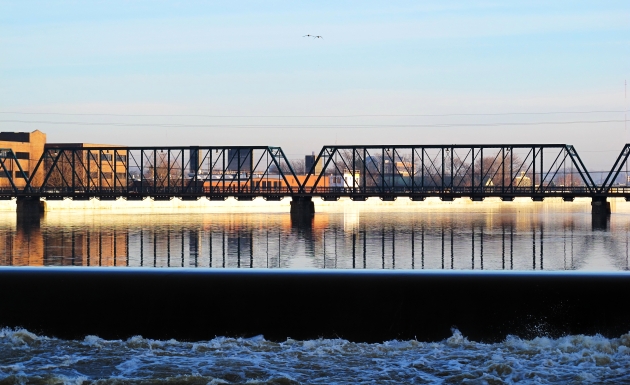Imagine that you’re standing at the center of a room so large that you can’t see the walls and that 180 school desks radiate out from you in concentric circles. At each desk sits a teenager. You’re a high school teacher, and the teenagers arrayed around you are your students. Behind each student there stand two parents. Behind each parent stand grandparents, aunts, uncles and friends of the family. Behind them, as far as the eye can see, swells an army of journalists, bloggers, educational policy experts, politicians, school administrators, superintendents, business owners, university professors, police officers, prison wardens and prison guards.
You turn in a circle and gaze in wonder at the masses of people gathered around you, watching you, judging your every move. About twenty of your students lean forward in their desks and look up at you with bright smiles. These students will delight in anything you might say to them. They love every one of your lessons and you can always count on them to raise their hands to answer and ask questions. Others, say about fifty or so, stare at you with blank expressions. They’re bored with your lesson, but they’re calm and polite. Still other students, perhaps ninety of them, are doing whatever they can think of to distract themselves from the learning task at hand. These students tap their pencils, pass notes, sneak peeks at their cell phones, whisper and chuckle at the boy who is launching spit wads at you when you aren’t looking. They may be apathetic and distracted, but for the most part these students remain under control. A group of perhaps twenty students bicker with each other, verbally spar, curse, wail about how much they hate school, hate your lesson, hate you. Some of them become physically violent with each other. A few may even threaten you with bodily harm.
Your students make up a representative sampling of America’s school children. A few of them are rich and live in mansions. About 130 of them fall somewhere in what society terms “the middle class,” though this designation encompasses such a broad range of economic and social circumstances that it is almost useless. Students in this category may come from families who are one lost job, financial catastrophe or medical emergency away from descending into poverty. Others are pushing up against the boundary that separates “upper-middle class” from “rich.” About forty of your students come from abject poverty. Many of them enter the doors of your school not having eaten breakfast. For some, the only food they will eat on a given day is the meal they receive in the cafeteria lunch line. Many of these students come from parts of the city that are infested with crime. They fall asleep at night to the sound of gunshots. They live in apartments and houses that are falling apart. When they’re sick they may not see a doctor because their family can’t afford it, and a working parent forgoes a day’s pay to stay home and care for them.
Whatever their socioeconomic status, many of your students come from broken homes and tense, even dangerous, family situations. They live in fear and they bring this baggage with them to your classroom. Some of your students are depressed, lonely and insecure. In this group of 180 students some can read at an advanced college level, others are getting by at grade level and still others can’t read at all. Each student has a particular set of learning needs, and your district, your principal and the entire education apparatus have told you that you must tailor every lesson to each student and that you must prepare the entire group for college. These are worthy goals.
While you try to teach your students a lesson about, say, the quadratic formula, you notice that the volume level in the room is steadily rising. The students are making noise, of course, but it is the adults thronging behind them who are the loudest. Some of the parents and family members are applauding you and giving you a “thumbs up.” Others are shouting obscenities. You can read the hatred on their faces. Every few seconds a random comment drifts over to you: “Incompetent,” shouts someone. “Stupid,” says another. “Lazy,” “Failing our kids,” “Doesn’t care,” you hear over the din. Mixed in with the invective are words of encouragement: “God bless you,” “Bravo,” “Inspiring.” Behind the parents the reporters, experts, university professors, politicians and other members of the community shout their own views. “Pay them more,” say some. “Pay them less,” say others. “Education is broken,” screams one expert. “I know exactly how to fix it,” cries another. “Fire them all,” says a politician. “Protect them,” insists another. Words and catch phrases rain down on you: vouchers, charter schools, accountability, standardized testing, performance pay, school choice, home schooling, private schooling, virtual classrooms, differentiation, learning styles, class size—the deluge never ends. The quieter parents look around in confusion and distress over the chaos they see growing around them. Meanwhile one police officer turns to another and says, “If this teacher can’t save these kids, we’re in trouble.”
On a normal day you teach your students for about six hours, thirty students per hour. You spend three to four hours at school planning and preparing lessons, creating PowerPoint presentations, cutting out manipulatives, making copies, writing rubrics, rearranging desks, organizing papers and records, attending meetings with administrators and other teachers, responding to e-mails, contacting parents, supervising the halls before and after school. . . After nine to ten hours at work, you return home, grab something to eat, kiss your spouse and play with your kids. Then, after about an hour of family time, you sit down and you grade papers for a couple of hours. Since students benefit most from specific, constructive feedback, you write helpful notes in the margins of their papers. You write a short paragraph at the end of each paper in which you explain the grade you’ve given and offer suggestions for improvement on the next assignment. By the time you’ve finished grading papers for the night, you have concluded an eleven or twelve hour work day.
At school you look around at your colleagues and notice that every year a few don’t return and a fresh new crop of college grads shows up to eagerly take their place in the classroom. You know that five years from now about half of the school’s faculty will have abandoned the teaching profession entirely, and you wonder what would happen if every five years half of all doctors hung up their white coats, or if half of all civil engineers decided to stop designing bridges. What would American technology and industry look like if every five years half of the country’s engineers, software designers and scientists left their professions and never returned? If any of these disasters were to occur, would we question the competence of the people leaving their respective professions, or would we wonder if something about the professions themselves drove them away?
The vast majority of teachers care about their students. They take every kind of kid from every slice of society and work their butts off to give them a good education. Clearly, most of them don’t last for long. They love teaching, most of them make enough money to live comfortably, yet within five years about half of them leave the thing they love. They need society’s help, not its scorn.



























































